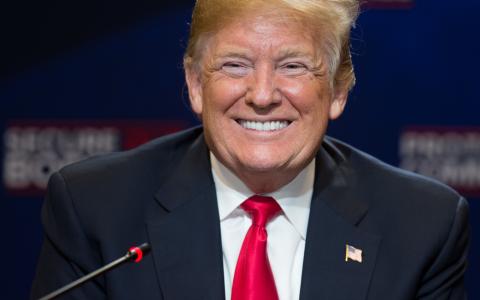
(Marketwatch) December 2019 is the exact opposite of December 2018 for stock investors.
Instead of overtightening, as it did back then, the Federal Reserve is accelerating the growth of its balance sheet. Yes, that really is a form of quantitative easing (QE), no matter how they spin it. Instead of dire headlines on the trade war, now there’s a “phase one” trade deal with China, where new tariffs are cancelled, and some old ones are cut . Instead of diving in an unseasonal manner, as U.S. stocks did in December 2018 (where at one point in the month the market was on track to deliver the worst December performance since 1931), the S&P 500 now is hitting all-time highs.
Looking back a year ago, my prediction for U.S. stocks in 2019, coming when the market was at its worst, worked out quite well. At that time, I was trying to filter out the senseless panic in the air on December 26, 2018 — the day of the 2018 intraday S&P 500 low (2,346.58).
It’s that time of the year again, so here’s my 2020 forecast: emerging markets get more attractive; U.S. stocks go higher, the economy strengthens and President Donald Trump is re-elected.
Here’s a big reason why: If the Fed goes through with its pledge to buy $60 billion of Treasury bills through the second quarter of 2020, the Fed balance sheet will be at, or close to, an all-time high in 2020. Quantitative easing is like printing money — but for financial institutions only — and this inflates the prices of both stocks and bonds.
The same way quantitative tightening hurt the U.S. market in 2018, the opposite nowadays boosts stocks and the economy.
The MSCI EM Index has now broken out and any pullbacks should be buying opportunities. This emerging market benchmark has a broad ETF: iShares MSCI Emerging Markets ETF. Keep in mind that emerging markets are not for the faint of heart and tend to be significantly more volatile than developed markets. But, the long-term fundamental outlook for the emerging markets is better. Almost a decade of outperformance of the MSCI EM Index over the S&P 500 ended in 2010, and since then it has delivered almost a decade of dire underperformance — which sets up the potential for emerging markets to swing back to a period of outperformance.
The MSCI EM index is beholden to China, and if there ever is a hard landing for the Chinese economy (I believe there will be, but when that would happen is difficult to predict, given the tight grip of the Chinese government over the financial system), the emerging market sector will experience something similar to a second Asian Crisis. But until there is evidence of a hard landing in China, which could be some time, the MSCI EM Index should do better than it did in the 2010-19 period.
Keep in mind that in 2020 the U.S. will have an impeached president running for re-election, with a record number of people working and unemployment near 50-year lows. I know everything is not perfect, but historically, a good economy has been an electoral advantage for an incumbent. My job is not to make political statements but to interpret how policies affect markets and help clients to profit from those facts.
So far, what Trump has done has been good for both the U.S. stock market and the economy on balance, from a short- and intermediate-term perspective.That said, the long-term implications of his tax cut are negative because of the unfunded liabilities of the government and the way deficits threaten the system, but I have never seen either a Democrat or Republican president worry that much about the long-term.
Also, I recognize that the Chinese phase one trade deal is half-baked, but it does remove some uncertainty from the economic environment. China’s state version of capitalism utilizes an army of state-appointed buyers to source products and commodities where they are told to source them, not where it’s the best deal. That’s because China purposefully buys more from their neighbors to increase their political influence, and less from the U.S. This practice has been rightfully targeted by the Trump administration.
I sure hope there’s a “phase two” deal with China — then both sides can declare victory. For the time being the tension is off the headlines. In a trade truce scenario, we may experience the second-leg effects of the Trump tax cuts. In 1986, President Ronald Reagan cut taxes and helped then Vice-President George H.W. Bush become president in 1988. In 2003, President George W. Bush cut taxes and got re-elected in 2004. Major tax cuts create a sugar-rush phase for the economy, then a pause (which we are exiting right now), and then a re-acceleration, which should come just in time for November’s presidential election. In other words, Trump is doing what any politician usually does, run for re-election on his record, which in this case would be a good economy in the U.S. and, potentially, rebalancing the trade situation with the Chinese.
Yet tax cuts do not pay for themselves. Structural reforms are needed in U.S. health care as well as entitlements. Leaving this situation as it is will create much bigger problems in the future. But 2020 is an election year and I don't believe anyone would dare mess with long-term structural issues now.
Accordingly, right now it looks like the U.S. economy will be a tailwind for Trump’s re-election bid. I would not be surprised to see the S&P 500 at 3400 or even 3500 by Election Day.



